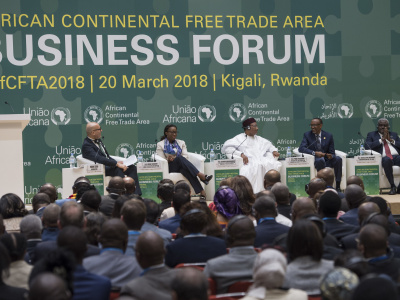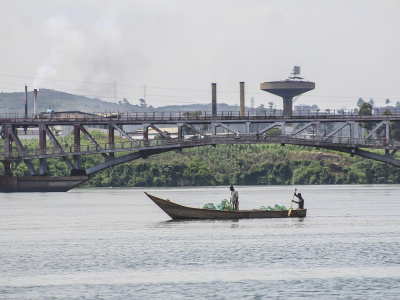
Nigeria and South Africa: Shaping prospects for the African Continental Free Trade Area
In March 2018, African leaders signed an agreement establishing the African Continental Free Trade Area (AfCFTA). This was an important step towards the longstanding goal of African economic integration, but there is a long way to go before an integrated continental market exists. Beyond concluding and ratifying the deal, African states will need to fully implement the AfCFTA Agreement to enjoy its benefits. Their record on implementing regional trade arrangements is not encouraging.
Summary
This paper analyses the political economy of trade policymaking in Africa’s two largest economies, Nigeria (which has not signed the AfCFTA Agreement) and South Africa (which belatedly signed), to better understand how domestic dynamics influence the way these two countries engage with the AfCFTA. In doing so, it seeks to shed light on the approach that these two African ‘swing states’ are likely to take towards AfCFTA implementation.
In Nigeria’s case, the analysis reveals domestic opposition to regional trade liberalisation from both interest groups and rent-seekers, and concerns about the government’s ability to implement effectively. But it also shows that the AfCFTA negotiations have inspired new domestic initiatives which may help implementation. In South Africa’s case, it appears that AfCFTA implementation will be more straightforward, but the low level of interest among the country’s private sector reveals scepticism about the AfCFTA’s benefits.





